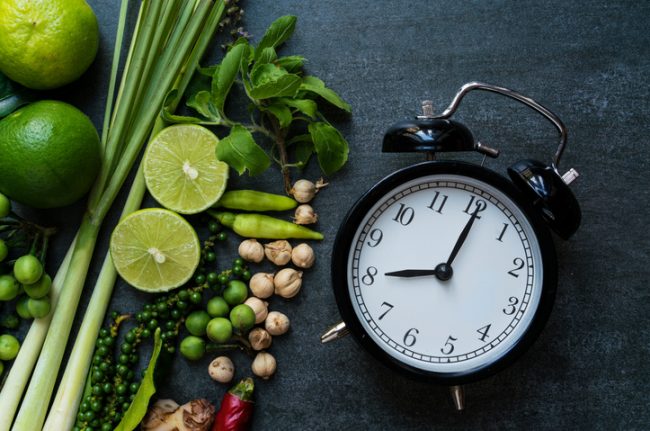Everyone knows that what you eat is important, but when it comes to what time of day you take a bite, does your belly have a bias? Apparently, yes. New research suggests that meal timing has important ramifications for lowering heart disease risk. The evidence, while far from conclusive, sheds more clarity on an ongoing controversy—whether certain meal patterns are better than others.
Because heart health is often linked with a healthy body mass, the crux of the issue is how meal pattern and frequency impact weight. For example, one argument is that sticking to three square meals a day – without snacking – helps control intake and prevent over-eating. But advocates for responsible snacking say that having five to six micro-meals can more effectively boost one's metabolism.
The most recent statement from the American Heart Association helps clear up some of the confusion. Their panel of experts say that paying attention to the timing of meals can help to lower risk of heart attacks and stroke. Using data from animal studies, the report gives a nod to the theory that like animals, humans do better eating when they are active.
Most likely, our metabolism peaks during the day and tends to shut down in the evening. Our organs are more competent at processing food earlier in the day than at night. While the report cautiously avoids making definitive rules, its findings are worth noting. We’ve paired the report’s findings with what the latest research says about the best time to eat and why.
Eat breakfast
If you consider breakfast as a latte on the fly, it’s time for a do-over. A recent study published by the American Heart Association found that men who reported that they regularly skipped breakfast had a higher risk of a heart attack or fatal coronary heart disease.
Another, earlier study showed that breakfast-eaters had more normal blood sugar levels and sugar metabolism, meaning they were less at risk for diabetes. Plus, cultivating a breakfast habit can come close to halving the chance you’ll become obese.
Nix late night eating
Start eating past 7:00 in the evening, and you may find yourself on the slippery slope to over-indulging. When your evening meal becomes the largest meal of the day, it’s usually because you skip breakfast and eat only a sandwich at lunch. Night eaters tend to consume more than half their calories at night, which can wreak havoc on overnight blood pressure.
It’s a normal pattern that’s a vicious cycle: The more you eat at night, the less sleep you get, which creates a slower metabolism. It all amounts to the perfect conditions for insidious weight gain.
And it takes a surprising toll on your heart. One study found that having dinner within two hours of bed time did more damage than the long-established risk of having a high salt diet. And because the usual suspects of late night eating tend to be over-processed fatty food, eating comfort food followed by lying down makes acid reflux much more likely.
The AHA statements suggests the best practice is to eat earlier, giving yourself a chance to burn off the calories.
Snack smart
The report suggests frequency of eating can be a problem for heart health, probably because grazing and weight gain often go hand in hand. If you like to nibble, rather than be prey to snack attacks and emotional eating, factor snacking into your day intelligently.
Mindful snacking does not have to be a contradiction in terms, especially if the snacks are protein-rich, satisfying hunger while curbing cravings. Snacking to avoid feelings or deal with stress tends to lead to weight gain. Paying attention to food’s taste—and your own fullness—can correct the tendency to use food to stuff down one’s feelings.




